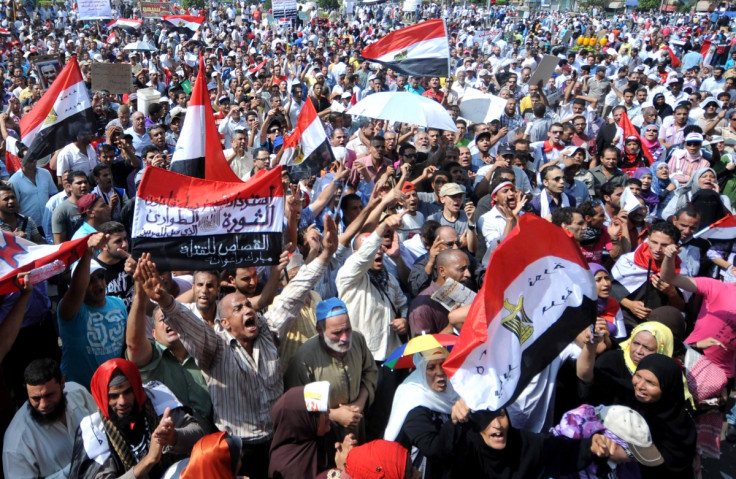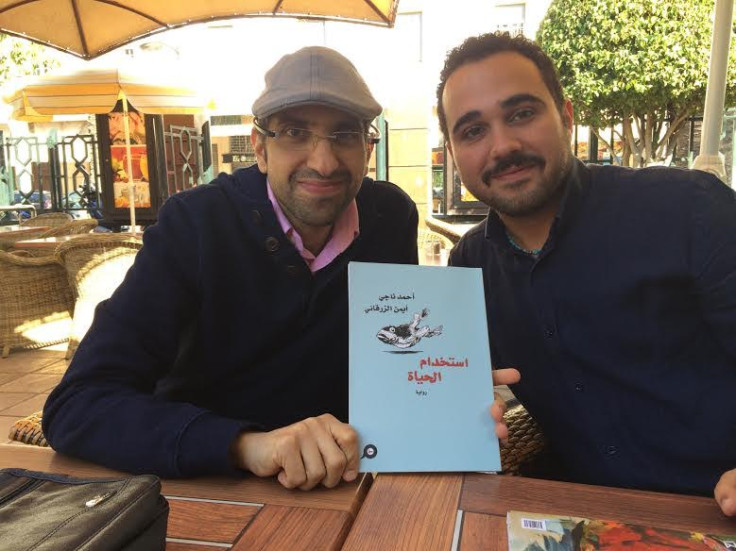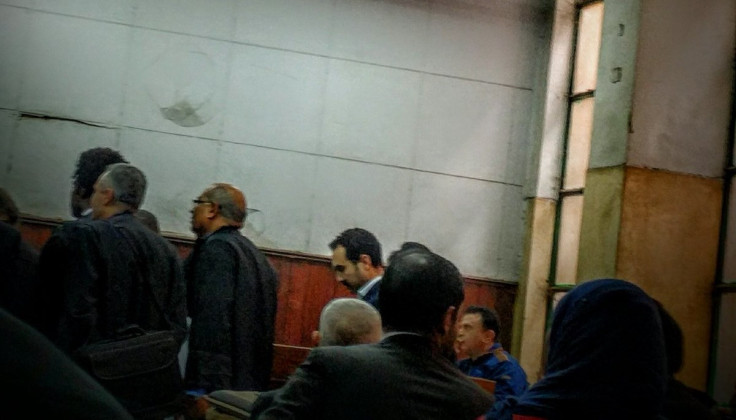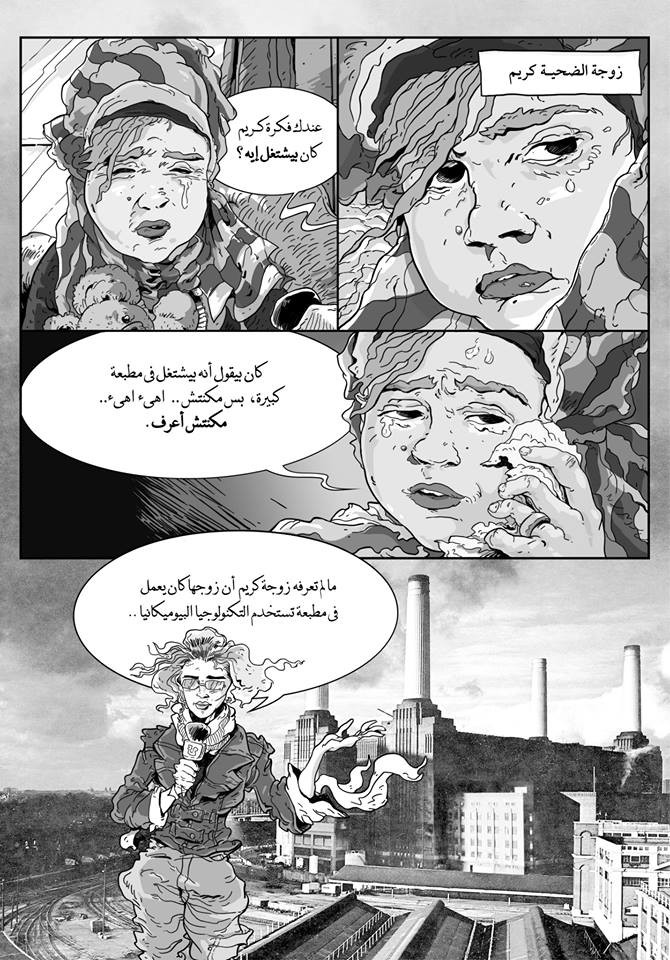Why is a 'free' Egypt more prudish about sex than Saudi Arabia?

Last month an Egyptian appeal court sentenced one of the region's most promising young novelists, Ahmed Naji, to two years in jail for writing a story. Much has been written about the case but what intrigued me is that it appears that as the ceiling of what is publishable in the Arab Gulf States rises, the ceiling of what is allowed in Egypt keeps declining.
The "problematic" chapter six of Naji's book The Guide for Using Life chronicles a "happy day" in the life of a young Egyptian man. Indeed the protagonist meets women, has sex, and the words 'condom', 'kissing', 'pussy', 'cock', 'sucking' and 'licking' appear. This adult language prompted an Egyptian man to file a case against Naji for "threatening his sense of morality". The case was lost and in such circumstances the plaintiff did not have the right to appeal. However, the authorities did have that right and to Mr Naji's surprise the unprovoked Egyptian state prosecutor appealed the harmless case, an act that probably sent an implicit signal to the judge, and the author was given the maximum possible sentence.
Ultimately, these are adult and mature words for an adult and mature audience, and they did not appear in a primary education textbook. Additionally, these are not alien phrases. The slang language used in Cairene streets is quite mature and some drivers even use their car honks to swear at each other. It appears that the Egyptian government has yet to catch up with its own people's linguistic creativity and perhaps is becoming more guarded than some of the most conservative states in the region.

Consider this case across the Red Sea. In 2005, Raja Al Sanae, a young Saudi Arabian author debuted her first novel – Girls of Riyadh – that according to press reports featured "gay teenagers, predatory lesbians, women drinking alcohol at weddings and husbands with unsavoury sexual demands". The book was so controversial that it prompted two men to file a case against the author and the Ministry of Information for allowing the publication of a book that "tarnished the image of Saudi women". The two men lost their case and not only was the author not sent to jail, the Girls of Riyadh was celebrated and went on to sell over three million copies.
That is not to say that freedom of expression, as Western societies understand it, exists in Saudi Arabia. In fact, Ashraf Fayadh, a stateless Palestinian poet, is unjustly serving eight years in jail there on blasphemy charges. However Saudi Arabia, is a recognised conservative Wahhabi Sunni Islamic kingdom with no constitution that guarantees freedom of expression and whose entire legitimacy is based around the notion of protecting Islam from sacrilege (the king's official is "Custodian of the Two Holy Mosques").

In Wahhabi Saudi, the ceiling of publishing non-blasphemous novels is surprisingly high. Whereas Egypt, a purportedly modern, secular and democratic nation with a fully elected parliament that recently passed a 2014 constitution that guarantees various freedoms enshrined following the overthrow of the Muslim Brotherhood's Islamist regime, has seen a regression in freedom of expression.
In fact Egypt's current constitution guarantees freedom of thought, opinion, and the expression thereof (Article 65). It guarantees the freedom of print, bans all forms of media censorship, and importantly in Naji's case, absolutely bans prison terms for publication crimes (Articles 70, 71 and 72). The lawsuit against Naji was treated as a press case and not merely a printed novel since chapter six of The Guide for Using Life was published in a magazine. Following the verdict seven members of the committee tasked with writing the current Egyptian constitution described Naji's sentence as "unconstitutional".
Since Girls of Riyadh was published in Saudi Arabia many other controversial books were brought to market, with the authors not being sued by the state. Among them is the 2013 best seller HWJN (pronounced 'Hawjan'), which chronicles a romance between a genie and a Saudi girl, as well as acclaimed writer Turki Al Hamad's Al Shumaisi, which is about a young man in Riyadh who "discovers a strange underworld of alcohol and prostitution". As a case in point Hamad was arrested in December 2012 for six months, though not put on trial, for tweets in which he likened Islamism to Nazism – and not for any of his novels.

In 2002, at the pinnacle of Hosni Mubarak's power, Alaa Al Aswany's Yacoubian Building, a novel that tackles sexual freedom in Cairo, was not only celebrated but also made into an acclaimed movie. Under Egypt's new democratic and secular post-Islamist regime not only is Aswany banned from writing in official papers and appearing on Egyptian TV, but his public gatherings are raided by authorities and cancelled. These actions are part of a concerted pattern of silencing non-state-affiliated intellectuals in Egypt.
"While I publish everywhere in the world, I cannot do so in my own country," said Aswany in a recent interview. Under Egypt's new government, he added, "freedom of expression does not exist, the situation is worse than under Mubarak".
Had Ahmed Naji been arrested and sentenced to jail for publishing The Guide for Using Life under the incompetent rule of the Muslim Brotherhood there would have been local and international outcry. However, because this is the democratic, secular, modern regime in Egypt that has ostensibly saved the country from troublesome Political Islamists, his illegal jailing will likely go unchallenged.
Sultan Sooud Al Qassemi is a commentator on Arab affairs. You can follow him on Twitter on @sultanalqassemi
© Copyright IBTimes 2025. All rights reserved.






















